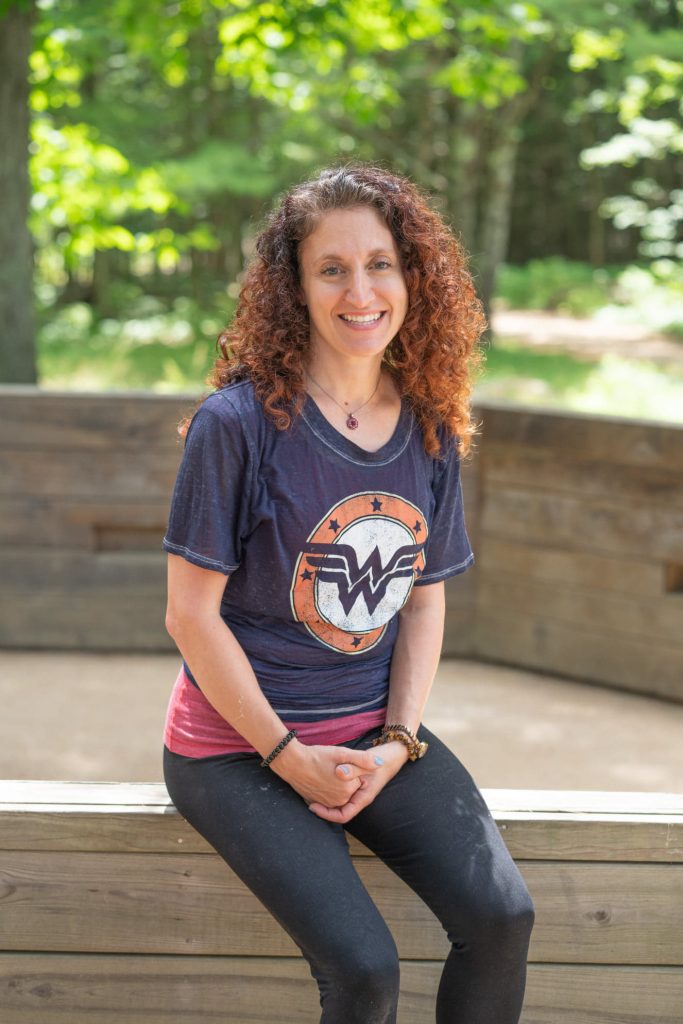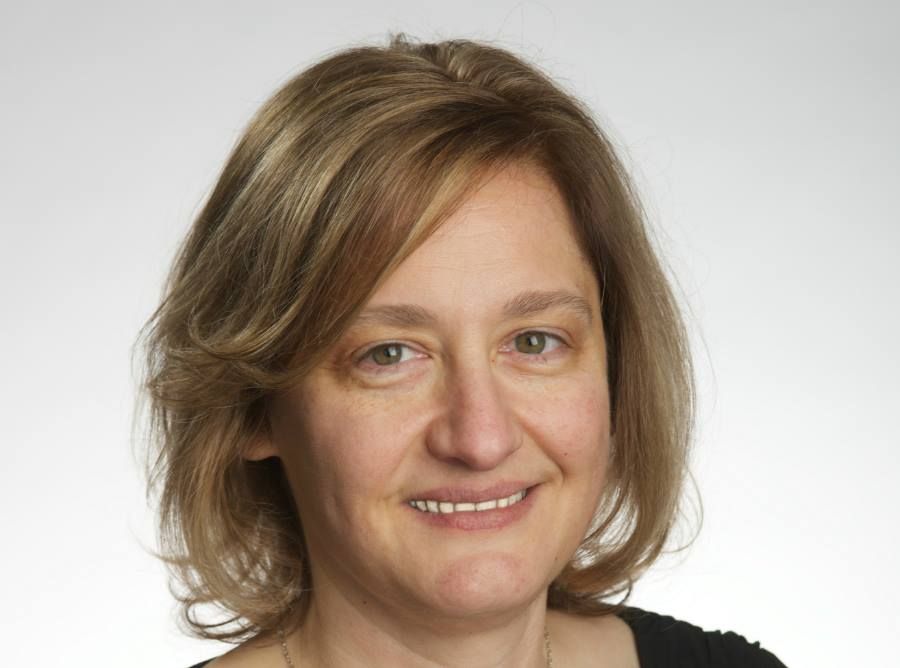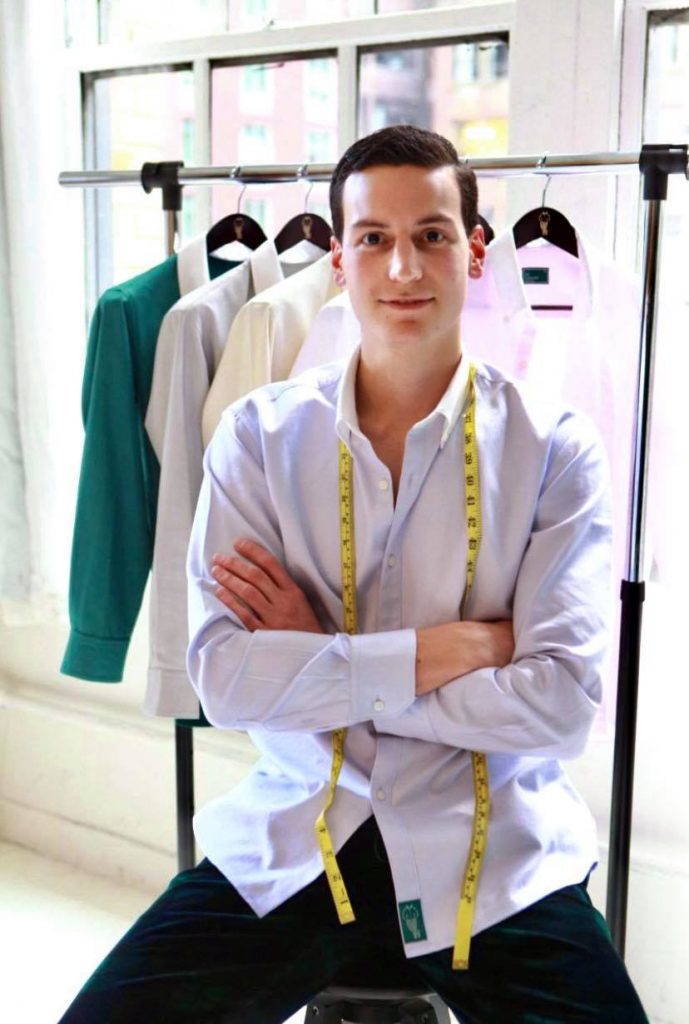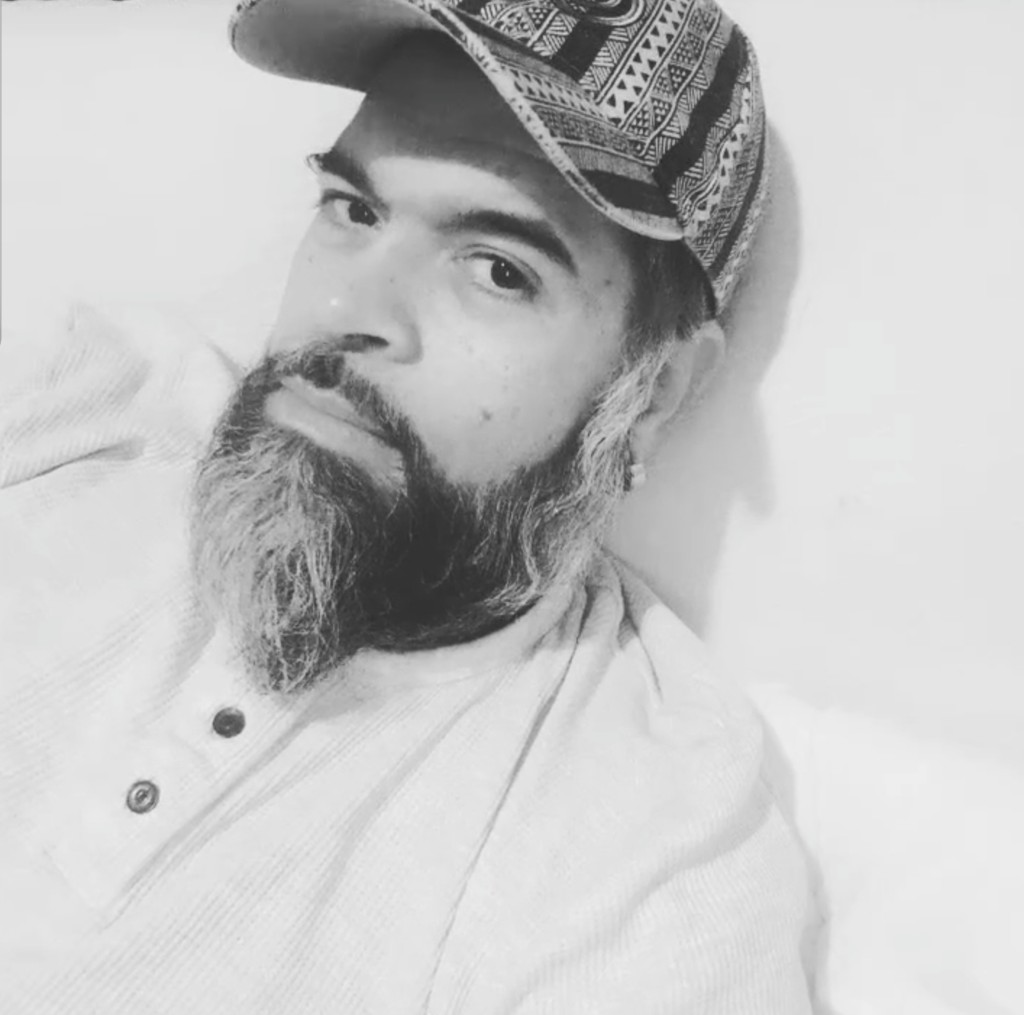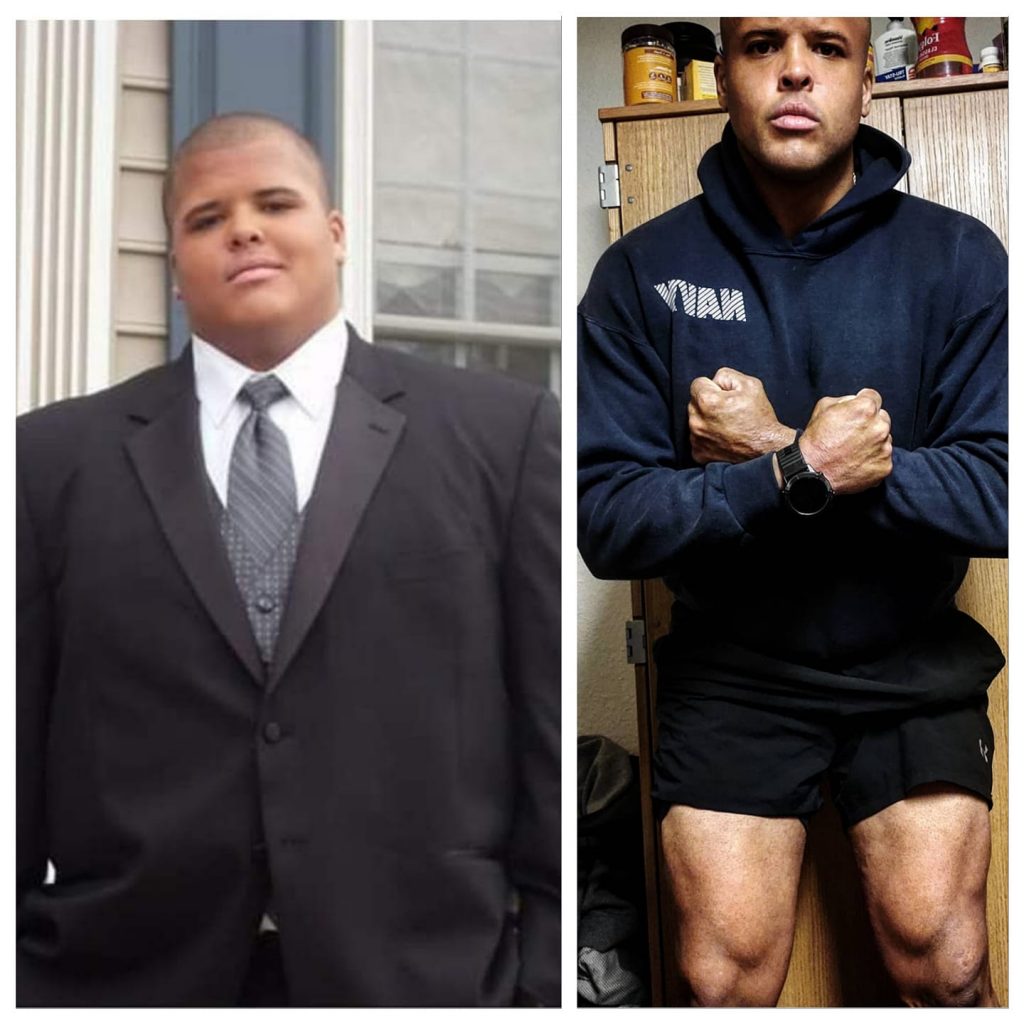Ann Lapin is a superhero without a cape who has taken more than 30 newborn babies under her wing to care for (for weeks to months) in an 8 year span. Beyond that, she’s started a new fitness bootcamp and works in education. Here’s her story.
TAMAR: Hey, this is Tamar. Today I am with Ann Lapin. She has an amazing story. Her career trajectory is very different than what she had expectations for. She also does this amazing thing. And I think every person who hasn’t heard her story, probably the mouth will drop because of this. This goodwill that she does for the world, I’m going to let her talk about this. Thank you for coming.
ANN LAPIN: Thanks for having me.
TAMAR: I don’t even know where to start. Because your story, everything you’ve done is just kind of inspiring. Maybe we’ll start with the more predictable, but not so predictable side of you, where you’ve kind of made these amazing transitions in your life, professionally. Give me a little bit story about who you are and where you come from and where you are today.
ANN LAPIN: Okay, no pressure. I grew up in upstate New York, in a really small Jewish community. But I always felt that was where I was going to find my professional self, not in a small upstate community, but rather working in the fields of education in the Jewish community. So, I went to college, I went to University of Maryland, got a Bachelor’s at Maryland. It’s a Bachelor of Science in Elementary Education. And as I was finishing the degree, I knew I wasn’t done learning. I wasn’t done studying. I think at the beginning of my college career had considered graduating and going right into teaching, probably day school teaching. But towards the end of junior year, maybe senior year, I knew I wasn’t done. I was going to go directly for a masters. And so, I moved to Los Angeles after graduation. And I went for my master’s at a small school, which was called the University of Judaism and is now the American Jewish University. And I got what we colloquially referred to as a Master’s in Jewish Education, but really, it’s Master of Arts in Education. And it comes with a second degree called Bachelor of Literature in Hebrew Letters. So as part of the whole graduate degree program, we had experience both in the classroom and with the administrative aspect of running a school. Now, when I got to the program, I was the only graduate student who already had a degree in Education. I had a Bachelor’s in Education. And I complained to the professors immediately and said, “I just want to place out of the administrative component because I’m not interested in administration at all. And they heard what I was saying and countered that that was in fact part of the overall education. I certainly didn’t have to go into administration but I did have to intern as an administrator in a school. And so, I did. And then if this were some sort of primetime drama, or comedy, you would already be able to predict that of course, I went directly into administration after I graduated with my master’s, despite my kicking and screaming about having to intern as an administrator. So, I was assistant principal of a school for a few years. And then that position was eliminated. And I moved to another school, and the supervisor they hired to supervise me after I moved was horrific. And so, I quit within six weeks, and which I want to talk about for just a second because we bad mouth quitting, and we have these tag line, “Winners never quit.” And I reject that because I was working with an abusive human.
TAMAR: Right.
ANN LAPIN: And it wasn’t a good scenario. And in fact, my husband said to me, “Something’s got to give, you’re miserable. We’re all miserable.” And so, I left. And that’s a good thing,
TAMAR: Right. And a lot of people are afraid to kind of seize the day and say, “I just need to get out of this abusive relationship.” People stick through it for years. So, kudos to you for doing that.
ANN LAPIN: Thank you. I do want to think more about how we talk to our kids and our kids in the global sense, teenagers with whom we interact. People who think maybe summer camp is not for them. After they’ve given it a try, they’re placed into the wrong courses in school, and they’re trying it, but they don’t belong there. And sometimes we really do have to tough it out. That’s the responsible thing. That’s the adult thing. But sometimes we need to leave. And so, in that scenario, I left. And I kind of cobbled together a lot of Hebrew school teaching jobs. And so, I actually was considered a full time Hebrew school teacher. And for anyone who doesn’t know, it doesn’t take up my whole day. But it takes up the entire afternoon into the evening. I did that for a long time. Off the top of my head, I want to say eight years. During that entire time, over the course of a career, I had kids. I was already married. And I was exhausted. Because it’s hard work doing lots of things at once. And when my son was about two years old, I received an email. It wasn’t sent directly to me; it was sent to a local Yahoo group to which I subscribed. And it was sent by somebody who found out that there was a local adoption agency that needed volunteers. And they needed volunteers to board newborn babies for a short period of time. And that seemed like something I could do, and also seemed sketchy. So, I Googled it. And when I googled interim boarding care, the name of the adoption agency that had been in this email popped up. So that’s either even more sketchy, or that just means it’s legitimate. And I took it as carte blanche to look into. And so over the course of a few months, my family and I were vetted, and became volunteers with an adoption agency that’s on the Upper East Side in Manhattan. And since then, we’re now at eight years, we’ve taken newborn babies, almost all of them into our home. They live with us for anywhere between days and months. Most of them are adopted after they’re with us. And some of them returned to their biological families. And we can talk more about that in a few minutes. But at the same time that we became an interim boarding care family, I started working out at a local boot camp because I had gotten a group on. And when I say same time, I mean June 24. The baby came home in the morning and I went to work out in the afternoon. That was the same day over maybe even less than a couple of years. Two or three years, I was such a dedicated regular at the boot camp. My trainer actually suggested that I train with him and one or two of the other trainers and become a trainer myself. And that kind of escalated when one of the trainers who had been working with us left. And so, I started taking over some of the classes. And I’ve been working as a trainer, both as a group fitness instructor, and in the past couple of years as a personal trainer. It’s a handful of years now. But when you reached out to me and said, “I want to talk to you about trajectory and what you do with your life and shifting things,” was actually the day that I decided I was going to open my own boot camp. And I couldn’t figure out how you knew that since I hadn’t publicized it yet.
TAMAR: Oh, I know. I know everything.
ANN LAPIN: So, what happened in case there’s maybe one or two things that you don’t know is that the boot camp I was working for ended very abruptly overnight. It was crushing and devastating. But I realized very quickly that I could just reopen. And I could work with the clients with whom I had enjoyed a relationship over the past year, over the past several years. And we can grow from there. So that’s what I’m doing now. So, it’s not the only thing I do with my time. As it turns out, there are a lot of different ways I spend my time. But what’s probably for most of my brain right now is boot camp and fitness. And probably secondary because I think it’s so interesting and fascinating and exciting taking care of babies.
TAMAR: Wow. Explain to me in terms of you have three children. So, this isn’t any small feat at all. I mean, you’ve had how many babies today? And on top of the relationship with your children, the babies, your sleepless nights? How are you? How do you get that done? Has there been any specific trigger that’s brought you to this point where you kind of felt like you needed to do this, like what drew you to this besides the email, which of course was a curiosity more than anything? But this is a tremendous undertaking. Babies sleep and eat and poop when they’re little, but they’re also up all night and you’re up all night. Explain that whole story. Explain how, what goes through your head, what goes through your family’s heads, how everybody works together in terms of making this a success for the agency, the parents, the children and you,
ANN LAPIN: We are up to I believe 34 babies. I often have to look it up when we’re at this time of year, because it’s not uncommon for us to actually not have a baby from June to about now and November. It’s been that way for us for the past few years. Because of our family schedule, I go with my children to summer camp. And we travel a little bit more frequently in the fall. In the late fall, we often will get our first baby in a long time. My children were two, five and seven I think when we took home our first baby, which is young. I was definitely the youngest mother in the program. When I started, I am not entirely sure how I pulled it off, except to say, really, for the most part, my children are easygoing. I did find myself for at least a year, probably a parent of two children in diapers because I had my own child in diapers and a newborn whenever we had one. And it should be said I don’t have a baby all the time. Like I just said, haven’t had a baby since June. And we’re recording right now at the beginning of December.
TAMAR: Your phone’s about to ring, you have . . .
ANN LAPIN: I do have a fitting in my lap. “We are hoping this week,” often when we travel home for Thanksgiving, the kids will say even on the airplane. Well, in the end it has happened. They sometimes called me while I’m in an airport on the way home from the adoption agency asking me to take a baby when I come home. We hope and we hope it’ll be fine. And I’m the only one who doesn’t sleep regularly when we have a baby. Though it should also be said that my children now are 16,14 and almost 11. And for sure the teenagers do a lot of work to the best of their ability, which is great. It’s greater than most adults. But to the best of their schedule. Also, they are honest about having to do homework and when they think they can hold a baby and study or when they think they can read and feed a baby and when they just need to be alone and do their homework. And I would like to say that I worked very hard to make sure that we’re all honest about our abilities in the home. But I think just by virtue of the fact that perhaps they’ve heard me say they only take care of a baby when they can, they change a diaper when they’re available, or when they are motivated to help. And I think that children’s capacity to help and be helpful and be generous with their time is certainly something that I didn’t anticipate. Caring for a baby seems much easier to my children than it even is to me.
TAMAR: That’s great.
ANN LAPIN: If they can do things with, “I can do things with one, I can set the table while holding it. I can set the table while feeding a baby.” But my eight-year-old daughter can get dressed while holding (a baby). These are stories that I remember from their growing up with babies. One of them was holding a baby and getting dressed while I was taking a nap and I finally heard the wrestling of the skirt. And I look up and there’s a little girl holding an even littler child getting dressed and she was completely capable. And the baby was not in any danger.
TAMAR: I guess there’s a benefit that these are really tiny babies. They’re not like 15-pound babies. They’re pretty much newborn.
ANN LAPIN: They’re absolutely newborn. On occasion we’ll have a baby who has not just been at the hospital. So perhaps they’re above eight pounds. We did once have a three-month-old and I was curious to see what my children’s physical reaction would be holding that not teeny baby; if they would react as soon as they picked him up, if they would complain after the first bottle. And it took a while for one of them to say, “It’s different because he’s not really a newborn.”
TAMAR: You talked about other things like you’ve had some struggles with your own situation. Give me a little bit of context. Do you think that has a tie-in and maybe an association with what you’re doing today?
ANN LAPIN: I will say that I wasn’t looking actively for a way to volunteer. But I think we’re both part of a community where volunteerism and being an active part of a community is a value. And there was a value that was difficult for me to act on. I feel like I’m 43 years old, and I’m kind of just now becoming the adult that I thought I was going to be in that dinner’s almost always ready when everybody’s ready to eat. And the home is relatively ready for Shabbat when it begins on Friday afternoon. And it took me quite a long time to get there. So, things like meal trains would go out for it, new family, or any number of other ways that we participate as community members, those things are all so hard for me. Really, really, really hard for me. And I tried some of them. And I gave up because I wasn’t good at cooking. And it wasn’t easy for me to drop off a meal. And I couldn’t help with carpool because I don’t like driving. And it’s hard enough for me to get my toddlers in the car. Things weren’t working for me from that perspective. And then this showed up on the screen. And I remember thinking, “Well, that I can do.”
TAMAR: That’s amazing.
ANN LAPIN: I can’t see that I looked at the screen and thought it’s super easy for me to not sleep through the night. However, I have found since I started, I do a little bit better without sleep than some people do. I’ve had people absolutely say to me, “I only have the number of children I have because I can’t do without sleep. Look, I go crazy.” If I go too long without sleep, I go crazy a little bit later than other people do. Admittedly, I have a flexible work schedule. And as I alluded to before, my family is not only emotionally supportive, they pick up the slack, often. Which is not to say it’s a burden on them. I think we know it’s not a burden, because they ask actively when we are taking a baby next. I think the question is what keeps me motivated and what makes me so passionate. And when people first asked the question, maybe a year or two into my volunteering with the adoption agency, I thought about the fact that I had lost two pregnancies. And I thought about the fact that one of those pregnancies, although I wanted the pregnancy, I didn’t in fact, want a baby with chromosomal abnormalities. And so, I try to put myself in a position of thinking about the biological parents who, maybe even like I did, professionally thought one thing would happen, and then another thing happens. I thought they’d be married and have a kid, and were no longer married; thought they’d have a child with a wonderful human being, and were the victim of abuse. And probably for a couple of years, I choose some sort of parallel, or attributed my motivation to staying as a volunteer with the adoption agency to the fact that I could put myself in a perspective of the biological mothers. But then I had this three-month-old baby that I told you about. I met the biological mother in the doctor’s office, and she was distraught. She hadn’t necessarily made the decision to place her baby for adoption but she had to explore her options. And part of that exploring meant that I was going to take the baby home for a few days while she worked with a social worker to figure out what was going to happen next. And she cried the entire time that we were in the doctor’s office. And I myself was almost panic stricken because I felt like all of the quote unquote adults in the doctor’s office weren’t doing a good enough job to help this woman who just needed support. She didn’t even need to be told what to do. She just needed to be held. And as I drove home from that appointment with her baby, I remember thinking, “This is why I do it. Because both of the times I lost a pregnancy, I happen to have been alone, physically, briefly, alone in a room. And that woman somehow, despite being surrounded by four other adults was alone. And I knew that I didn’t want that for anybody else.” And that really resonated for me, the fact that I can be a support for other families for the biological families who are considering what their next steps are, or who have already begun to make a decision, but needs support. And adoptive families also need support in ways that we often don’t talk about. Sometimes they need help understanding how to parent and how that kind of bottom line tackles the needs that their child is going to have because they’ve already met their child. And I can tell them something about the bottles, diapers and pacifiers, but also a sensitivity and attentiveness about the fact that they don’t yet have their child and in fact, it might not work out for them. So being able to be supportive is a motivation for me to continue volunteering and losing some sleep at night.
TAMAR: Yeah, you acknowledge that. I mean, what you’re capable of doing is something that most people cannot do. But yet you say that there’s always some things that definitely seems easier for some people. On the contrary, it’s seriously like you should be wearing a cape. (Ann Lapin laughing) You got this amazing hair. I love a color. Beautiful. So, we just get matching cape with it because seriously, it’s visible. It’s totally there. I totally see it all the time.
ANN LAPIN: I left it hanging in my closet. Had I known, I would have brought it with me.
TAMAR: Yeah, totally should have. I just want to ask you a logistic question. You mentioned that June 24 was the day that you started. You got the baby and you went to boot camp? How does that work given the fact that you have a baby? Like, do you leave the baby off to the side, and then the boot camp? Do you have somebody helping? Because seriously, you have to be turned on all the time that you’re at the baby’s beck and call. So how does that work? I assume that other people are probably having that question. So, I figured I’d ask it.
ANN LAPIN: The answer is yes. The more specific answer is, we always have to remember when we have conversations like these that there are babies that I take care of, with the exception of two newborn babies. So, if we go back to the archives, and we remember a newborn baby who’s 48 hours old, 72 hours old, cords and tags still attached, a floppy internet personality. They sleep a lot. And I’m here right now to dispel any myths about crying. For the most part, newborn babies don’t cry. They don’t have to. So, at this point in our home, we really don’t have a lot of crying babies because we learned their cues. There are five of us. Thank God 10 hands, babies well taken care of, well respected.
TAMAR: You need an IP game nickname for your family. The baby whispers because clearly, I don’t know my kids’ cues . I mean, you have consecutive babies. For eight years, it’s been like 30 something babies. I mean, I have four children. And it might have taken me like eight months to figure out cues for each kid. So, it’s also an amazing feat.
ANN LAPIN: And I want to say that I’m not the only one who learns the cues. Everybody in the family. I can tell stories of the condescending remarks of one of my family members who would say “He’s not hungry, just put him to sleep. Look at the way he’s pulling up his fists.” Everybody learns a little something about a baby. So that particular day when I started boot camp, I left the baby at home with my co- parent, and all the other parents I live with. So sometimes I can do that. Because there’s another adult that I live with. And on occasion, that adult might need the help of the teenagers I live with. Everybody, everyone. Everybody pitches in for sure. However, because those babies are newborns, I mean, I teach right now in a boot camp situation with really loud music. That doesn’t affect the babies because they’re wrapped up and you know, their ears are super safe. But they sleep through the class.
TAMAR: Right.
ANN LAPIN: If a newborn baby can sleep three hours a time during the day, they don’t always do that at night, then I can teach with a baby. And I’ve done that. I brought the babies with me to work depending on their age, depending on their temperament, depending on the germs in the season. But in general, I can bring a baby with me, stash a baby away from peering and touching eyes and hands. It’s a lot though. We have definitely had scenarios where I can’t remember why. I could make something up like, there was a gas leak in our building. And so, the entire building was evacuated. And one of the kids said, “Oh, it’s a good thing we don’t have a baby right now.” So, we don’t have those moments a lot. But there are definitely times where we acknowledge the calm that we are living without a baby. And there’s certainly chaos with the baby. But it’s happy, positive chaos.
TAMAR: Cool. That’s amazing. So, you’re doing all these amazing things. But I want to know, some giving of yourself, as for you, it’s a very fulfilling thing. But one of the tie ins that I like to understand is, how do you take care of the wellness side of things? Where do you put yourself in the context of what you’ve been doing? How do you focus on your own self- care?
ANN LAPIN: Some of the answer I think, Tamar is easy. As a boot camp instructor, I work out when I teach often. And I consider that part of self-care, the opportunity to work out and maybe I go about that the wrong way. Maybe it’s a necessity, and it shouldn’t be considered self-care. But I think it is, the flip side of it is, when I have a baby and I’m not sleeping well. Sometimes they don’t work out when I teach, and I may do more self-correction of my clients. I might walk around the room and be more one-on-one because I know that I’m undergoing a physical toll at that time. I might take it easy in times where I might otherwise exert myself. I have paid my children to listen for a baby while I take a shower or a nap. I think that’s self-care. I think that’s also care for the people I’m around so I don’t snap at them. I have to say there’s a lot that I do that I consider self-care. I think the time that we spent, the time that I spend on social media is a form of self-care, when I’m careful to not expose myself to things that I’m not interested in or that backfire.
TAMAR: A lot are too dramatic.
ANN LAPIN: There’s a lot of drama, but also tuning that out and recognizing that what I’m doing or what I do is more important than the drama. And I might turn that off. That’s a really important form of self-care. That’s something I want to be able to transmit to my children, to be able to tune out the things that really aren’t priorities.
TAMAR: Cool. Anything else that I should know about? That you would think that I should have asked?
ANN LAPIN: Well, we did talk offline about the way that we make things work, living in this geographical area. Oh, that can be expensive and costly, in many different senses. So, we talked about the fact that I’m a group fitness instructor and a personal trainer. And I may have said I’ve gone back to Hebrew school teaching a little bit. It’s like a drop in the Hebrew school teaching bucket. And we know I don’t think we talked about it here. I’ve been a Mary Kay consultant for 13 years, I think. And I’ve definitely benefited from the psychology behind the business. And what we learn about inviting other people to join us in things that we really enjoy doing. One of the best analogies that I ever learned through Mary Kay is “Be a stick of gum.” So many things that I do is a stick of gum. I really enjoy gum, I like you. So, I’m going to offer you my stick of gum because I want to share it with you. And if you don’t like gum, it didn’t say anything about me. So, it’s no sweat off my back and then there’s more of them for me. I’m fortunate enough to work with really fabulous, lovely people through my Mary Kay business. Specifically, we are in 2019 and there are so many opportunities to interact with people. So many kinds of hidden opportunities largely on the internet. You complimented my hair color. And I said it was new. And I just got it yesterday by being a hair model downtown in the City
TAMAR: It’s fire red. It’s really cool.
ANN LAPIN: It’s a pretty awesome red. And I have pretty awesome hair to begin with. So, it was important that it be an awesome color even though I had to buy into that. I was there for a red’s class. So, I had to buy into the red. And then later on today, my husband and I are going to the movies. And we’re going to fulfill a customer service evaluation as part of my being in a mystery shopping. I’m a mystery shopper for concessions and movie theaters. And those are some of the things we do. I really consider all of that self-care also. And as the stylist coloring my hair said to me yesterday, “Wait, why do you have any guilt just for taking time out of your day to come here?” He said, “You’re not paying for it.” I said, that’s a good point. I still feel like I’m missing out because yesterday was early dismissal because of the snow. And even though I had planned to just be out while my children were gone, it’s funny we say and plans and God laughs because the children were home while I was getting my hair color. Oh, well, self-care.
TAMAR: Yes. I had to take them to a physical therapy session for me. So, they’re sitting in the front. They were causing ruckus. Let’s just say that was exciting. It was so wonderful. Final question. Perhaps if you could communicate with your postgraduate self, what would you tell her?
ANN LAPIN: I think I would tell my postgraduate self to keep working, make good decisions. And I think the notion that we have the capacity to make good decisions and the responsibility to make good decisions is a great umbrella thought; and probably a good way to end the show. Make good decisions.
TAMAR: Awesome. Well, thank you so much. And this is amazing. I’m at a loss for words to talk about the amazing things that she’s doing for the community, for children in general. I think I don’t have a tremendous lineup for who’s going to speak here. But if that’s not true, there’s a wish list of people. And I have to say what you do is unparalleled to pretty much everybody and I’m talking about big people that are in the celebrity status world, are household names to some people. So, again, thank you so much for taking the time for sharing your story, for doing what you do for future generations.
ANN LAPIN: A pleasure. I love the talk.
Podcast: Play in new window | Download (Duration: 33:09 — 45.5MB)
Subscribe: RSS

